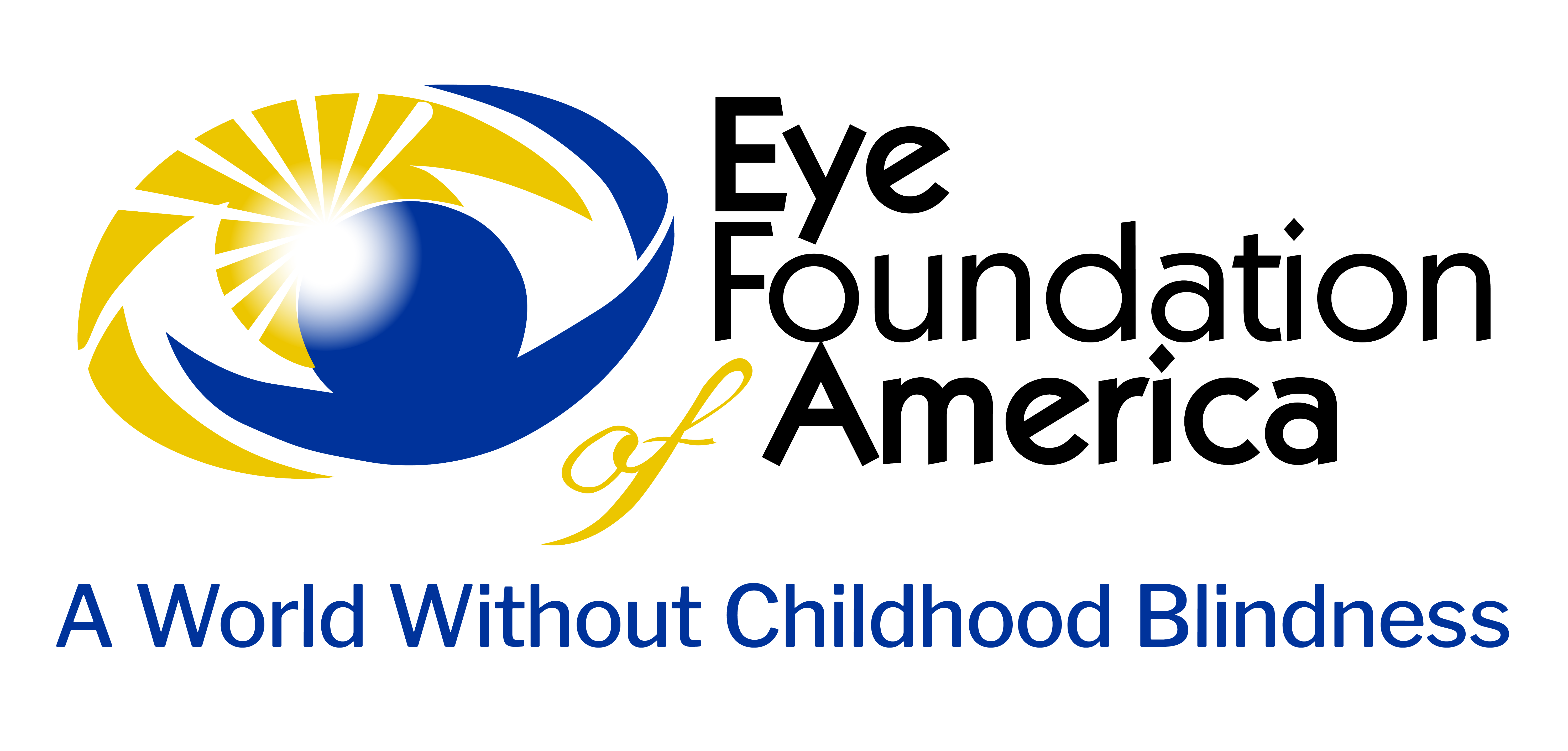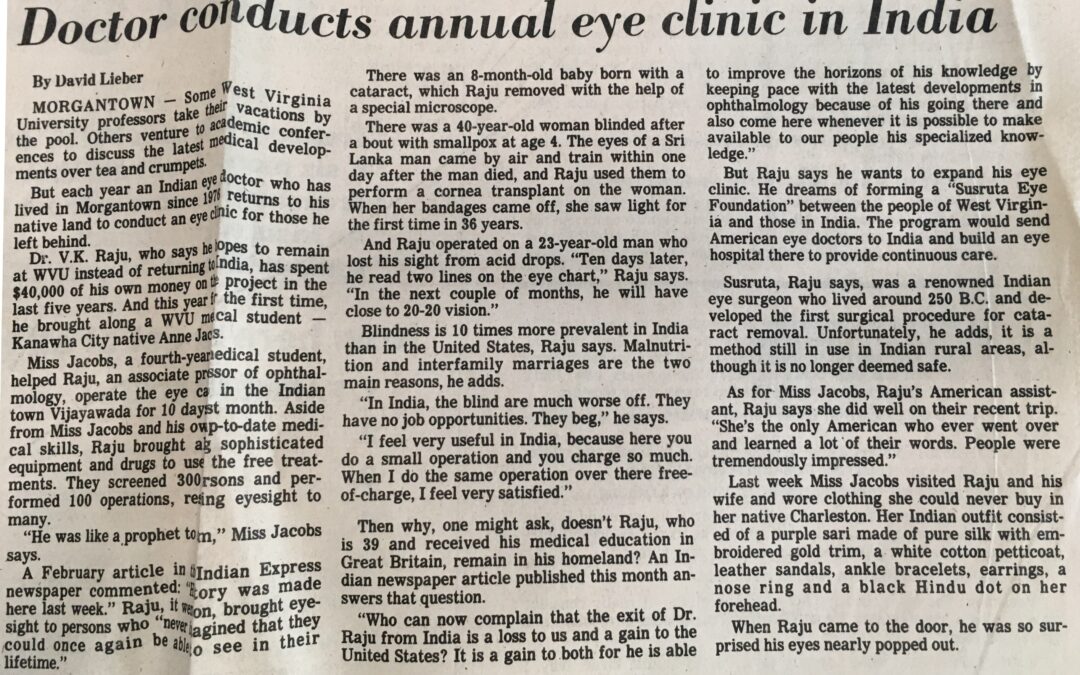By David Lieber
MORGANTOWN – Some West Virginia University professors take their vacations by the pool. Others venture to academic conferences to discuss the latest medical developments over tea and crumpets. But each year an Indian eye doctor who has lived in Morgantown since 1976 returns to his native land to conduct an eye clinic for those he left behind. Dr. V.K. Raju, who says he hopes to remain at WVU instead of returning to India, has spent S40,000 of his own money on the project in the last live years. And thi.s year for the flrst time, he brought along a WYU medical student• Kanawha City native Anne Jacobs.
Miss Jacobs, a fourth-year medical student, helped Raju, an associate professor of ophthalmology, operate the eye camp in the Indian town Vijayawada for 10 days last month. Aside from Miss Jacobs and his own up-to’-date medical skills, Raju brou&ht along sophisticated equip• meot and drugs to use in the free tratments. They screened 300 persons and performed 100 operations, restoring eye.sight to many. ‘He was l)ke a prophet to them,” Mi.ss Jacobs says..
A February,article in the Indian Ex- press newsper commented: “History was made here last week.” Raju, it went qo, brought eyesight to persons who”never imagined that they could once again be able tb see in their lifetime.’
There was an 8 month old baby born with a cataract, which Raju removed with the help of a special microscope. There was a 40 year old woman blinded after a bout with smallpox at age 4. The eyes of a Sri Lanka man. came by air and train within one ·day after the man died, and Raju used them to perform a cornea tranplant on the woman. When her bandages came off, she saw light for the first time in 36 years. And Raju operated on a 23 year old man who lost his sight from acid drops. “Ten days later, he read two lines on the eye chart,• Raju says. “In the next couple of months, he will have close to 20-20 vision.” Blindness is 10 times more prevalent in India than in the Unlted States, Raju says. Malnutrition and interfamily marriages are the two main reasons, he added. “In India, the blind are much worse off. They have no job opportunities. They beg.” he says. ‘”I feel very useful in India, because here you do a small operation and you charge so much. When I do the same operation over there free-ofcharge, I feel very satisfied.”
Then why, one might ask, doesn’t Raju, who is 39 and received his medical education in Great Britian, remain in his homeland? An Indian newspaper article published this month answers that question. “Who can now complain that the exit of Dr. Raju from India is a loss to us and a gain to the United States? It i.s a gain to both for he is able to improve the horizons of his knowledge by keepi.ng pace with the latest developments in ophthalmology because of his going there and also come here whenever it is possible to make available to our people his specialized knowledge.” But Raju says he wants to expand his eye clinic. He dreams of forming a “Susruta Eye Foundation” between the people of West Virginia and those in India. The program would send American eye doctors to India and build an eye hospital there ro provide continuous care.
Susruta, Raju says, was a renowned Indian eye surgeon who lived around 250 B.C. and developed the first surgical procedure for cataract removal. U nforeunately, he adds, it is a method still in use in Indian rural areas, although it is no longer deemed safe. As for Miss Jacobs, Raju’s American assistant, Rnju snys she did well on lheir recent trip. “She’s· the only American who ever went over and learned a lot of their words. People were tremendously impressed.’ Last week Miss Jacobs visited Raju and bis wife and wore clothing she could never buy in her native Charleston. Her Indian outfit consisted of a purple sari made of pure silk with embroidered gold trim, a white cotton petticoat, leather sandals, ankle bracelets, earrings, a nose ring and a black Hindu dot on her forehead.
When Raju came to the door, he was so surprised his eyes nearly popped out.
Published February 28, 1982 Sunday Gazette•Mail Charleston, West Virginia


Recent Comments